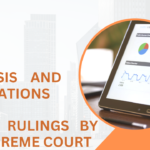If you have received a settlement for a personal injury claim in Georgia, you may be wondering, “Do you have to pay taxes on a personal injury settlement in Georgia?” The taxability of personal injury settlements is a complex issue with many nuances under federal and Georgia state tax laws. This article will provide an overview of when personal injury settlements are taxable, the types of damages that are taxable, how to minimize taxes, and work with your attorney and accountant to determine your potential tax liability.
Thank you for reading this post, don't forget to subscribe!When Personal Injury Settlements Are Taxable
Personal injury settlements are not always taxable. According to the IRS, you may need to pay taxes on all or a portion of your settlement depending on the underlying claims involved:
- Settlements compensating for physical injuries are generally not taxable. This includes compensation for medical expenses, pain and suffering, emotional distress, and other non-economic damages resulting from physical harm.
- Settlements compensating for non-physical injuries are often fully taxable. These include compensation for lost wages, damage to reputation, punitive damages, interest, and compensation for non-physical symptoms like insomnia, anxiety, depression or loss of consortium resulting from an injury to a spouse.
- Settlements can include both taxable and non-taxable damages. Your attorney should help distinguish which portions of the settlement correspond to each category. Failing to do so can result in higher tax liability.
Types of Taxable Damages in Personal Injury Settlements
Lost Income – Any portion of a settlement compensating for lost wages, earnings, or profits is taxable income per the IRS. This includes lost income from being unable to work due to an injury.
Punitive Damages – Punitive or exemplary damages awarded to punish egregious behavior are taxable per the IRS. These are additional damages beyond compensation for actual losses.
Pre-judgment Interest – If your settlement includes interest on damages accrued prior to the settlement date, this pre-judgment interest is taxable as ordinary income.
Non-Physical Injuries – Compensation for non-physical injuries like emotional distress, pain and suffering, or loss of consortium is taxable unless directly attributed to physical sickness or injury per the IRS.
Legal Fees – In Georgia, legal fees paid on a contingent basis are not tax deductible, so your tax liability is based on the full gross settlement amount.
How to Minimize Taxes on Your Personal Injury Settlement
- Properly allocate settlement amounts – Work closely with your attorney to assign appropriate amounts to taxable versus non-taxable damages in settlement documents. Get tax advice on optimal allocations.
- Use structured settlements – These allow you to receive settlement payments over time rather than a lump sum, which can lower your tax bracket in each year.
- Explore tax-free settlement options – Certain structured settlement annuities and disability-related payments can be partly or fully tax-exempt.
- Offset with business losses – If you have business losses or loss carryforwards, these may be able to offset settlement income for tax purposes.
- Consider the lump sum vs. installment dilemma – Lump sums allow more investment control but may push you into a higher tax bracket.
- Understand your tax basis – Keep thorough records of all medical expenses, documents, and other costs incurred so you can properly calculate losses.
Work With Your Legal and Tax Advisors
Determining what portions of your settlement may be taxable involves navigating complex IRS rules and regulations. It is highly advisable to work closely with both your personal injury attorney and a tax professional to minimize your liability.
- Your attorney can help structure the settlement, properly categorize damages, and include language to support tax-free treatment where possible.
- Your CPA can offer tax advice, review settlement documents, maximize write-offs, explore settlement structuring alternatives, and ensure your tax return is accurately completed.
Having experienced advisors in your corner can help avoid costly tax-filing errors and ensure you retain as much of your settlement as legally possible after taxes.
Do you have to pay taxes on a personal injury settlement in Georgia?
In Georgia, the taxability of personal injury settlements depends on the underlying claims and types of damages being compensated as outlined above. Since Georgia tax law generally conforms to federal IRS rules, both economic and non-economic damages can potentially be taxed. Working closely with experienced legal counsel to properly document and allocate your settlement is key to minimizing taxes. In most cases, at least a portion of the settlement will be subject to taxes, so be sure to plan accordingly.
Frequently Asked Questions
What types of damages are taxable in Georgia?
In Georgia, taxable damages can include lost income, punitive damages, interest, compensation for non-physical injuries like emotional distress, or damages attributed to a loss of consortium rather than direct physical harm.
What legal costs can I deduct in Georgia?
Since Georgia does not allow you to deduct legal fees for contingency fee cases, you cannot write these off. You can only deduct costs you paid out of pocket, like court costs and fees for expert witnesses.
Can I deduct medical expenses?
Unfortunately, you cannot deduct medical expenses covered by your settlement. However, you may be able to include reimbursed medical costs when calculating your casualty loss deduction. Consult a tax professional for guidance.
Are lost wages taxable if I am self-employed?
Yes, any portion of a settlement allocated as compensation for lost business profits is considered taxable income, whether you are self-employed or receive a typical salary or wages.
Should I accept a lump sum or structured settlement?
There are pros and cons to each when it comes to taxes. Consult your attorney and tax advisor to see which option may result in more favorable tax treatment in your specific situation.
How long do I have to pay taxes on my settlement?
You must report the taxable portions of your settlement on your federal return in the same year you receive the funds. State taxes depend on Georgia rules but generally follow federal guidelines.
Can my CPA represent me in an IRS audit?
No, while a CPA can help prepare your return and provide guidance, only a licensed tax attorney has privilege with the IRS and can legally represent you in the event of an audit related to your settlement.
What resources are available if I can’t afford the taxes I owe?
If you lack the funds to pay taxes on your settlement, the IRS offers payment plans and other options. Your tax professional can explain the alternatives and help negotiate the best resolution.
Should I request a settlement breakdown from my attorney?
Yes, be sure your settlement documents clearly specify amounts for each type of damage. This allows for more accurate tax planning and reporting. Keep these records indefinitely in case of an audit.
Can I open a personal injury trust to reduce taxes?
Structured properly, personal injury trusts may allow you to deduct future medical expenses and protect assets. Discuss with your attorney if this strategy could benefit your specific situation.
Summary
“Do you have to pay taxes on a personal injury settlement in Georgia?” The answer is usually yes on at least part of the settlement, but the amount can vary substantially based on the types of injuries and losses being compensated. Key tips for accident victims in Georgia include:
- Properly categorize damages as taxable versus non-taxable
- Explore settlement structuring alternatives
- Maintain thorough records of losses and expenses
- Seek legal and tax advice before finalizing a settlement
With sound legal and tax guidance, you can structure your settlement in the most optimal way and avoid unwelcome surprises when filing your taxes. This ensures you are left with the maximum possible recovery amount after any tax obligations are fulfilled.










